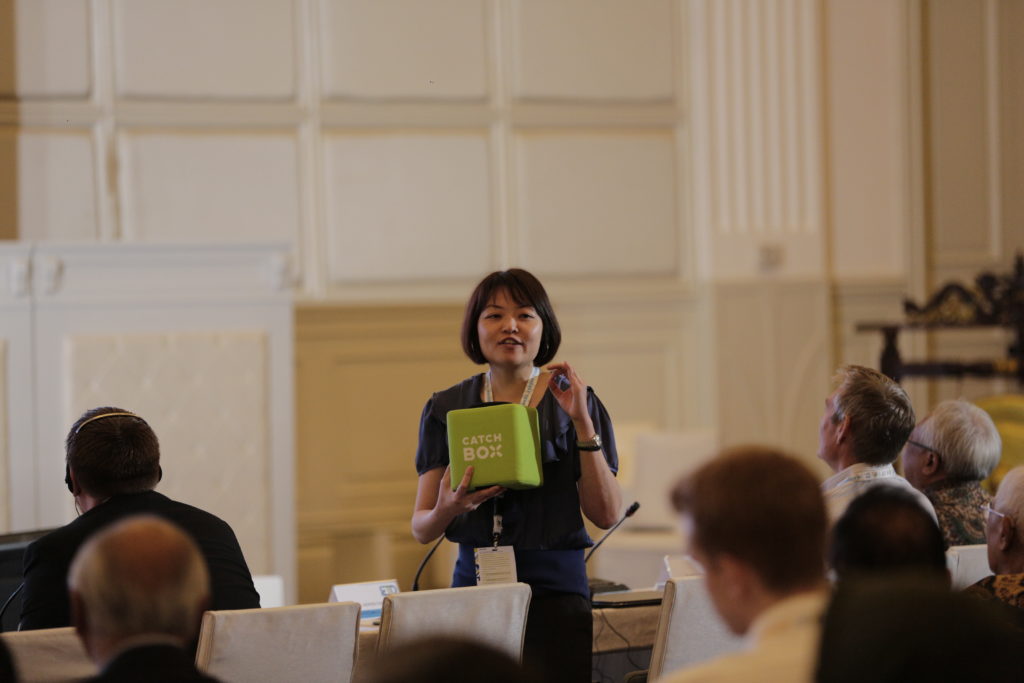[vc_row css=”.vc_custom_1565542682041{margin-right: 0px !important;margin-left: 0px !important;}”][vc_column css=”.vc_custom_1565542696462{padding-right: 0px !important;padding-left: 0px !important;}”][vc_single_image image=”3246″ img_size=”1365×300″ el_class=”banner-event”][/vc_column][/vc_row][vc_row css=”.vc_custom_1565542751414{margin-right: 0px !important;margin-left: 0px !important;}”][vc_column width=”1/4″][/vc_column][vc_column width=”1/2″ css=”.vc_custom_1565622195563{padding-bottom: 50px !important;}”][vc_column_text el_class=”title-event”][post_title][/vc_column_text][vc_column_text el_class=”date-venue-news”]Jakarta, 14 November 2019
[/vc_column_text][vc_column_text el_class=”text-par-news”]The ASEAN Centre for Energy (ACE) has been invited by the Indonesia Clean Energy Forum & Institute for Essential Services Reform (IESR) to present the “State of Energy Transitions in ASEAN Countries” at the Indonesia Energy Transition Dialogue (IETD) 2019. Whereby, the dialogue was held in the Tribata Hotel, Jakarta from 13 to 14 November 2019, and was attended by ambassadors of Denmark and the United Kingdom, Indonesian Government senior officials, University researchers, International Organizations (IOs), and private companies.
In light of the global energy transition trends, the dialogue was focused on 1) Reinforcing the concept of energy transition, including its drivers, consequences, as well as techno-economic opportunities and challenges for stakeholders in the Indonesian power sector; and 2) Facilitating the energy transition discourse by building a systematic approach to tackle energy transition issues.
 Dr. Hoyyen Chan Delivered an In-Depth Dialogue with the Crowd
Dr. Hoyyen Chan Delivered an In-Depth Dialogue with the Crowd
On the first day of the IETD 2019, our Senior Research Analyst of ASEAN Climate Change and Energy Project (ACCEPT), Dr. Hoyyen Chan delivered an in-depth dialogue with the crowd in the context of energy transition in ASEAN countries.
One of the key messages of her sharing was to invite the member states to accelerate the decarbonization in this region in order to meet the regional renewable energy and energy efficiency targets by 2025. She showed the gaps and highlighted the challenges of the ASEAN in realizing the energy transition.
Moreover, it is important to note that the conventional definition of risk of energy security, which comprises the aspects of price fluctuations and supply disruptions has evolved over time; whereby aspects including environmental sustainability, human security, overall cost, and accessibility are equally important. Therefore, the energy transition is a crucial pathway to ensure a sustainable ASEAN community. [/vc_column_text][vc_column_text el_class=”photo-caption-news”](AN/HYC) (Photo Credit: IETD)[/vc_column_text][/vc_column][vc_column width=”1/4″][/vc_column][/vc_row]











